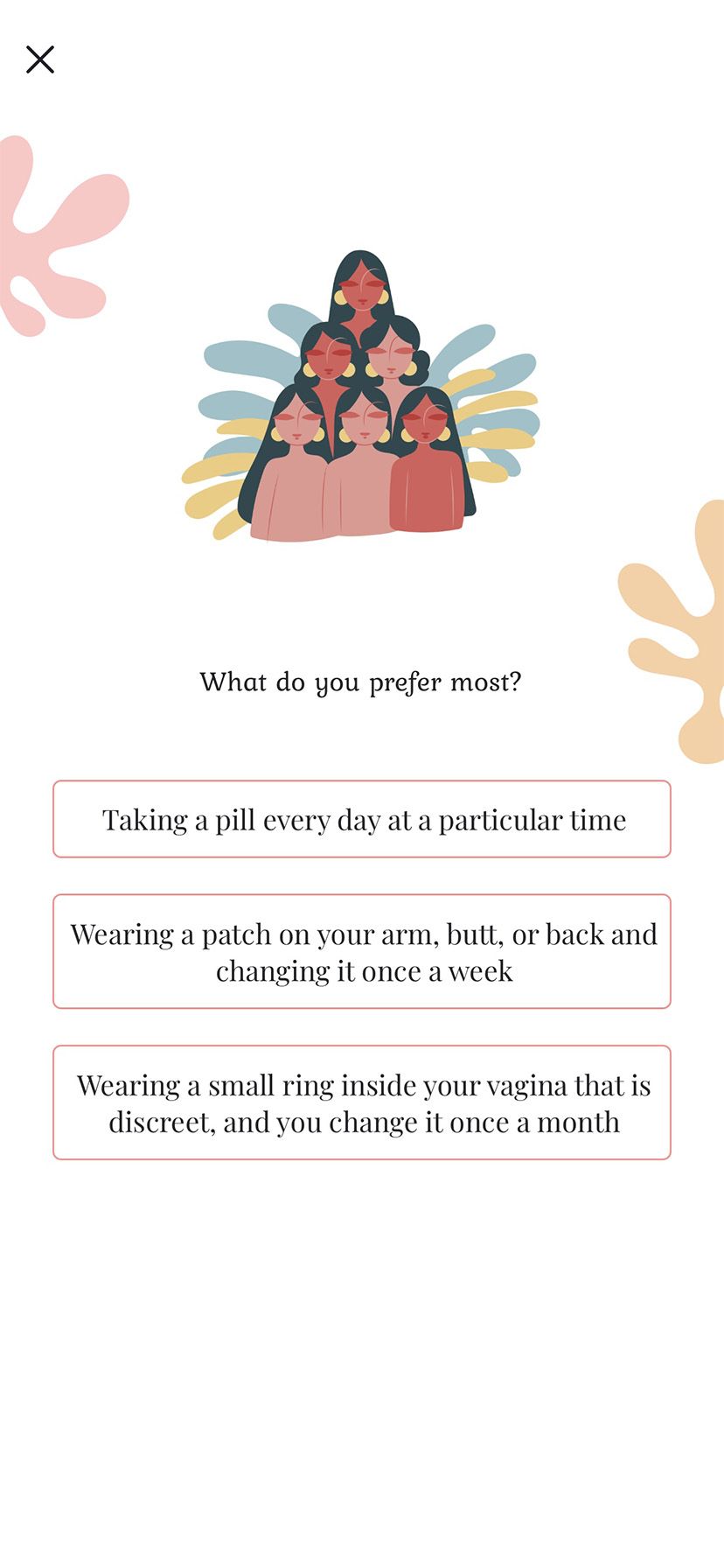Birth control pills are small doses of hormones taken every day, for 21 days at a stretch, to prevent pregnancy. The hormones are a combination of the synthetic forms of estrogen and progesterone or only progesterone (called minipill). Like other medications have side effects, so do birth control pills. There are no long-term side effects of birth control pills. Not everyone experiences the side effects of birth control pills, and most of these side effects usually go away after two to three months. However, if the side effects are bothering you, it is a good idea to revisit your gynaecologist if any other form/type of birth control pill could be prescribed to you.
What are the side effects of birth control pills?
Some of the most common side effects of birth control pills that one can experience are:
- Spotting or breakthrough bleeding between periods (commonly experienced while taking progestin-only pills/minipills or when taking pills for more than 21 days continuously)
- Sore breasts
- Nausea
- Headaches
- Weight gain
- Mood changes
- Missed periods (you may experience very light or missed periods)
- Vaginal discharge 1 2
How common are birth control pills side effects?
Birth control pills are actually highly safe for most women, but there could be side effects sometimes. Serious side effects that could be due to the pill are rare, but a majority of women will experience minor side effects only. These side effects go away within 2-3 months of taking the pills, if this is not the case for you please consider visiting a doctor. The common side effects include nausea, weight gain, spotting, and sore breasts. Rare side effects of these pills can range from high blood pressure and sleep issues and conditions like blood clots. 3
Do birth control pills make your boobs bigger?
Some women notice changes in their breasts when they first start using birth control pills. Birth control pills contain hormones like estrogen and progestin. These hormones present in the pills may cause temporary changes in your breasts. Permanent changes in breast size are possible only through surgery. In most cases, any change in breast size is due to fluid retention or temporary weight gain, mainly due to an increase in hormone levels.
While taking the active pills in the pill pack, some women may notice a change in their breast size. When you take any of the inactive or placebo pills that may be in your pill pack, your breast size may return to normal. The temporary changes should subside after a few weeks or months on the pill, and your breast size will also return to normal. 4
Do birth control pills cause weight gain?
Although it is rare, some women experience a slight weight gain when they start using birth control tablets. It is usually a temporary side effect caused due to fluid retention rather than extra body fat. Any weight gain is usually minimal and disappears within two to three months, just like other possible side effects of the pill. If you are one of those people who has put on some weight, consult your doctor. They may suggest a different kind of birth control pill for you. This is because all birth control pills are not the same.
There are broadly two types of birth control pills:
- Progestin-only pills, which contain only progestin
- Combination pills, which contain both estrogen and progestin
While most birth control pills contain the same type of estrogen in various doses, each brand may have a slightly different form of the hormone progestin in different doses. It can result in potentially different side effects.
Early in the 1960s, when birth control pills were first being sold, their progestin and estrogen levels were very high. Due to an increased appetite and fluid retention, estrogen in high doses had led to weight gain. So, about 50 years ago, the pills might have led to weight gain in some women. Hormone levels in current birth control pills are much lower. Therefore, gaining weight due to birth control pills is not a common problem. 5
How long does birth control side effects last?
Birth control pills can have side effects, just like other medications. However, most symptoms of these pills disappear within two to three months. Many people use birth control pills without any problems. The most frequent birth control pills side effects are headaches, nausea, sore breasts and spotting or bleeding between periods (more common with the progestin-only pill). However, these symptoms often disappear within two to three months and not everyone who uses the birth control pill will experience these symptoms.
You are not supposed to feel sick or uncomfortable while using birth control. Fortunately, many different birth control methods are available, which gives you customised options. After taking the pill for three months, if you still experience side effects that bother you, talk to your doctor about trying another brand of birth control pill or a different method of birth control. But do not stop taking the birth control pill without starting a new birth control method because then you will not be able to prevent unwanted pregnancy. 6
Do birth control pills harm your body?
Even while birth control pills are very safe, taking the combination pill may slightly increase your risk of health problems. Although complications are rare, they can be fatal. These include liver tumours, heart attacks, strokes, and blood clots. Progestin-only pills, also known as POPs or micro pills, generally don’t have these risks.
Inform your doctor about any medications you are taking and any health problems you may have had while discussing the birth control pill options. You should keep in mind that, for most people, the chance of experiencing any of these problems while taking birth control pills is very low. Pregnancy and abortion have a higher risk of severe health problems than the pill. Choose the birth control method that is the safest for you with the assistance of your doctor.
Most women who take the pill will not experience any problems at all. However, just in case, you should be aware of the warning signs of a severe problem:
- Sudden back or jaw pain with nausea, sweating or trouble breathing
- Chest pain or discomfort
- Achy soreness in your leg
- Having trouble breathing
- Severe pain in your belly or stomach
- Sudden and severe headache
- Headaches that are different, which may be worse or happen more often than usual
- Yellowing of eyes or skin
However, in the long term, there are a few positive and negative relationships between birth control pills and certain cancers. Taking combination birth control pills for a longer period may decrease the risk of ovarian and colorectal cancer. Similarly, taking any kind of birth control pill for a long time can reduce the risk of endometrial cancer. At the same time, prolonged estrogen exposure in combination with birth control pills can lead to an increased risk of cervical and breast cancer. In both these cases, however, the risk decreases to almost zero, ten years after stopping the use of birth control pills. Contact your doctor if you are worried about any of your health problems. 7
Who should not take birth control pills?
You should avoid using progestin-only pills if you have had:
- Kidney or liver disease
- Adrenal insufficiency
- Cervical, ovarian, breast, uterine or endometrial cancer
- Certain types of lupus
- Breast cancer
You should avoid using combination pills if you have had:
- Any blood clots, an inherited blood-clotting disorder or any vein inflammation
- Breast cancer
- Heart attack, stroke, or any other serious heart problems
- Migraine headaches
- An uncontrolled high blood pressure
- Very bad liver disease or diabetes
Like every other medication, birth control pills also have their side effects. Birth control pills and smoking do not usually go together. If you are over 35 and a smoker, you should avoid using combination pills (COCs) or any other type of birth control that contains the hormone estrogen. If you are over 35 and vape, consult your doctor about whether the combination pill is appropriate for you. If you smoke, you can take progestin-only pills (also known as POPs or minipills). 8
What is the safest birth control?
The IUD and implant are the most user-friendly and effective types of birth control, and they also work the best at preventing pregnancy. If you can use them correctly, other birth control methods, such as the birth control pill, ring, patch, and shot, are also quite effective at preventing pregnancy. However, people make mistakes, and these methods are more prone to errors when compared to implants and IUDs. Hence, the best birth control method for you is the one you are most comfortable using and will always use correctly.9
When is the best time to take birth control pills morning or night?
Birth control pills can be taken at any time, either in the morning or at night, but it will be easier to remember if you take them before breakfast or bedtime. This has to be a time that is easy to remember and convenient to incorporate into your daily routine. The most important thing to remember is to take the pill at the same time every day; otherwise, the pill may not be as effective. It is not necessary to take the pill along with food. But if you’re prone to nausea; you will mostly be advised not to take the pill on an empty stomach. 10 11
Can I get pregnant on the pill?
Yes. Despite the high success rate, birth control pills can fail, and you can become pregnant while you are on the pill. Even if you use birth control, certain factors increase your risk of getting pregnant. You should keep these things in mind if you are sexually active and want to prevent an unplanned pregnancy.
Birth control pills are 99 per cent effective when used properly, which means taking them at the same time every day and without skipping a dose. Due to human errors and how women usually take the pill, they are about 91 per cent effective in real life. The usual failure rate for combined oral contraceptives and progestin-only pills (often referred to as the minipill) is 9 per cent.
Certain conditions or behaviours can make your birth control less effective in preventing pregnancy. If you forget to take your pill at the same time every day, you increase your chances of becoming pregnant. Birth control pills are used to maintain a constant level of hormones in your body. Hormone levels can drop quickly if you skip or forget a dose. This may cause you to ovulate, depending on where you are in your cycle, and ovulation can increase your chances of becoming pregnant.
Alcohol abuse can also cause birth control failure. Some women who drink may neglect to take their medication at the proper time. Also, your body might not absorb any hormones if you vomit too soon after taking your pill. Your hormone levels may drop due to this, which can cause ovulation. Taking another medication or supplement simultaneously with your birth control pill can reduce the pill’s effectiveness.12
Can the pill cause infertility?
There can be a lot of misunderstanding when it comes to birth control and fertility. However, hormonal contraceptives do not result in infertility, no matter what method of birth control you use and how long you have been using it.
They are designed to delay your fertility temporarily and prevent pregnancy. However, your normal fertility levels will ultimately return once you stop taking them. All the birth control methods like birth control pills, vaginal rings, the contraceptive skin patch, and hormone-releasing contraceptives (IUDs) are used in different ways. But all these methods work in a similar way by changing hormone levels and preventing the release of the mature egg from the ovaries (ovulation). However, some methods may cause longer fertility delays than others.
You may have heard that some women continue to use birth control far into their 30s when it becomes more difficult for them to become pregnant as they are closer to menopause, the end of their reproductive years. Their experience is because of ageing and not the pill. 13 14
What birth control has the most side effects?
Depo-Provera is a birth control with many side effects, given as injections in the form of the hormone progestin. This form of birth control is 99 per cent effective. But it may cause contraceptive side effects like irregular bleeding. People who use Depo-Provera for more than one year stop getting their menstrual periods. It is the only contraceptive which may cause weight gain. Birth control pills may also cause a few side effects, but they may be experienced for a temporary period. Usually, they go away within a few months when you continue to take the pill. If this is not the case with you, then you should consult a doctor. Also, remember that if you stop taking the pill without starting a new method, it will no longer be effective in preventing pregnancy. 15 16
If you are worried about the right birth control option for yourself, consult a gynaecologist on the Pinky Promise app @ ₹50/- only! You can also check out our gynaecologist-verified chatbot to understand more about your reproductive health symptoms and connect with thousands of women on our anonymous community support chat rooms. So what are you waiting for? Download the Pinky Promise App now!






